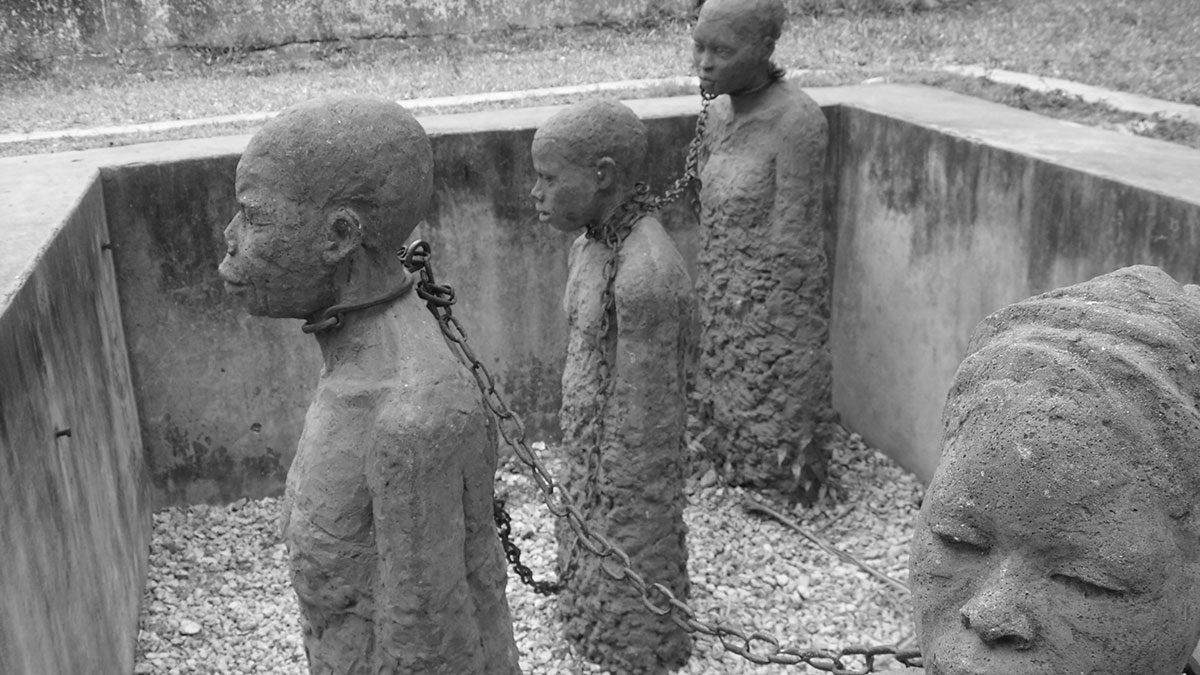According to the version of history that Americans are taught at school, slavery was abolished in the United States when the North won the civil war. Indeed, the legal instrument that supposedly ‘abolished slavery’ – namely, the 13th Amendment to the US Constitution – was ratified and came into force on December 6, 1865, eight months after the civil war ended.
But did the 13th Amendment really abolish slavery? Read it carefully and you will see that it did not:
Neither slavery nor involuntary servitude, except as a punishment for crime whereof the party shall have been duly convicted, shall exist within the United States…
What the 13th Amendment did was confine slavery to the penal system. And within the confines of the penal system slavery soon flourished anew. Black men were arrested, convicted of some real or imaginary crime, and leased out to pick cotton, cut sugarcane, fell timber, mine coal, and build railroads for private companies. Later state governments bought plantations and ran them as prisons.
Living and working conditions in the penal system were no better than they had been before the civil war. Perhaps worse.
Whipping has become a symbol of black slavery. Prisoners continued to be whipped until 1941 in Texas, until 1967 in Arkansas.
Shane Bauer describes punishments still imposed as recently as 1956 on black and now also white prisoners on a Texas cotton plantation (American Prison: A Reporter’s Undercover Journey into the Business of Punishment, Penguin Press 2018). Men who failed to meet the quota were deprived of food and water and forced to spend the night inside a crowded and stifling chamber of steel and concrete or hanging from tight handcuffs with toes barely touching the floor.
This was at a time when the champions of ‘Western democracy’ were boasting of the moral superiority of their system over its ‘totalitarian’ rivals. The horrors of the Gulag were always central to the Western indictment of ‘Soviet communism.’ And yet, as we know from Alexander Solzhenitsyn’s Gulag Archipelago, prisoner-slaves in Stalin’s labor camps who failed to meet their quota were not subjected to such tortures, though they did have their bread ration cut and were at risk of starvation.
How fortunate we are to live in the Land of the Free and the Home of the Brave!
Another country where slavery persisted well into the twentieth century is our neighbor to the south, Mexico. The situation there under the regime of Porfirio Diaz, which was overthrown during the Mexican Revolution of the 1910s, was analyzed by John Kenneth Turner in his book Barbarous Mexico: An Indictment of a Cruel and Corrupt System (1910). The slaves who toiled in Mexico’s plantations and lumber camps included convicts but also members of indigenous tribes who had resisted the theft of their lands (in particular, the Yaquis) and men who had been tricked into signing fraudulent ‘labor contracts’ and then transported under guard. In the Valle Nacional – also known as the Valley of Death – the life expectancy of ‘contract slaves’ was only one or two years. The plight of slaves in Mexico is the theme of several novels of the writer who goes by the pen name of B. Traven – apparently a German socialist who took part in one of the workers’ insurrections that followed World War One and found refuge in Mexico.
Several kinds of slaves still exist in the world today. First, there are debtors enslaved by a creditor to work off a high-interest debt that they somehow never manage to redeem and that is passed on from one generation to the next. Second, there are people who go to earn money abroad, where they find themselves tied to a single abusive employer (for instance, women from Sri Lanka or the Philippines who go to work as servants in Lebanon or Saudi Arabia). Third, traditional forms of slavery persist in certain countries, such as Mauretania, despite laws that prohibit it but are not enforced. And prisoners remain slaves in many respects, as do military personnel. Finally, there are people who have been illegally kidnapped and then treated or sold as slaves.
Enslavement by kidnapping is a growing danger to the many vulnerable people attempting to migrate from Latin America to the United States or from Africa and western Asia to Europe. Would-be migrants place themselves in the care of an individual who poses as a ‘people smuggler’ but instead of guiding them to their destination kidnaps them and sells them into slavery. Under the chaotic conditions that have engulfed post-Gaddafi Libya, the expanding flow of migrants has fueled a revival of the slave trade in that country (Emma Graham-Harrison in The Guardian, May 13, 2017), while in Mexico a religious sect called Defenders of Christ has kidnapped migrants and used them as sex slaves.
So when was slavery abolished?
It has never been abolished.



